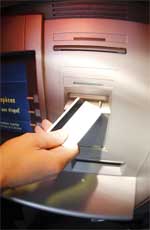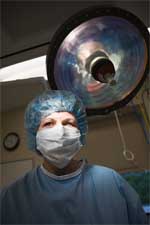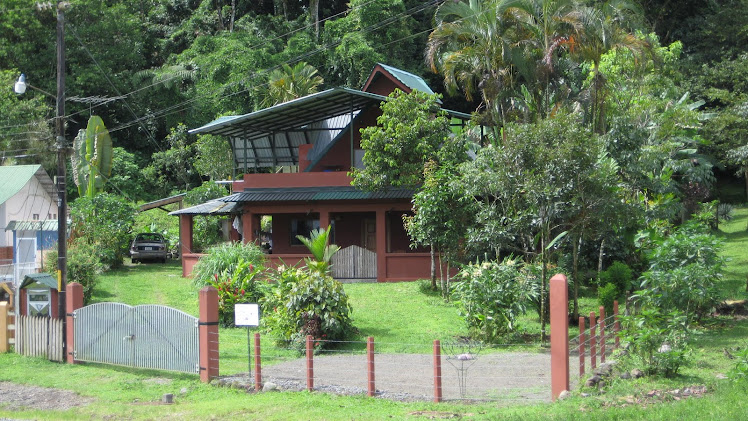The proposal contains some surprises and is weighted heavily toward low-income earners.
The exact wording of the tax still is under discussion in the legislature, which may give initial approval this week or next. From what has been published so far, these appear to be the potential impacts on expats living here:
• The tax proposal levies an assessment for the first time on home rentals. A $1,500-a-month rental would generate a tax of $210. Any property with a monthly
 | rent of less than about $1,430 would be exempt from the tax, which is keyed to the value of two base salaries, now 721,200 colons. • When an expat goes to an automatic teller, the tax will be collected on the commission the local bank charges for the transaction. If the commission is $3.50, |
• Monthly electrical and water bills with usage more than a minimal amount also will be taxed.
• The tax proposal will add from about 8 to 11.46 percent to the cost of a new home, according to the Cámera Costarricense de Construcción. The proposed law does exempt for 18 months certain architectural and survey services and construction work.
• The transfer tax on the sale of a home worth more than 50 million colons (about $100,000) would be increased to 3 percent from the current 1.5 percent.
• The importation of a shipping container would not appear to be subject to the tax, but exporting a container, perhaps with furniture and personal possessions, would incur a tax.
• A $50 visit to a private physician would generate a
 | tax of $7. Ditto for a visit to a dentist. Foreigners who visit Costa Rica specifically for some form of medical, dental, cosmetic or other treatment, also face a tax assessment that may be in mid three figures. • Plumbers, carpenters and others who are on contract also will be obliged to assess a 14 percent tax |
• Anyone who works on a contract instead of for a fee will have to collect and remit a 14 percent tax on their services. For expats, that does not mean a household gardener because that service is specifically exempted from the tax as one of 267 such items. Real estate broker services are included specifically in the proposed law.
• To avoid persons ducking the services tax by hiring professionals in other countries, offshore work also will be taxed at 20 percent, according to the proposal.
This proposal might be litigated because it seems to be counter to The Central American Free Trade Treaty which encourages offshore services.
• What the government calls a luxury vehicle,
anything worth more than about $38,000, is subject to
 | a 50 percent additional cost each year when the owner pays the road tax. If the owner would normally pay 1 million colons in annual tax, the amount is increased to 1.5 million colons, about $3,000. In addition there is a half percent increase to 3 percent in the vehicle |
• The proposed law levies a 2 percent tax on private school tuition more than 110,000 colons (about $218) a month.
• There are 32 different colegios or professional groups in Costa Rica. They range from lawyers and physicians and surgeons to the more obscure Colegio de Profesionales en Ciencias Económicas and Colegio de Profesionales en Nutrición. Services by members of each will be subject to the new value-added tax for professionals. Some, like members of the Colegio de Optometristas, already pay some tax in the frames and lenses they sell. But they would be subject to a value-added tax on their services.
The colegios made pitches to the legislative committee studying the tax plan. Many approved of some form of taxation. Other representatives stressed the value of better collection methods of the current taxes. Odontologists said that the 14 percent value-added tax on their services would diminish the number of Costa Ricans who seek dental help. Only 23 percent are serviced by the Caja Costarricesne de Seguro Social, said a representative, who avowed that nine out of 10 Costa Ricans have some periodontal problems.
• Expats working here via Internet would seem to be obligated to collect the 14 percent tax on their work unless they were salaried or could show that they are covered by an exportation exemption. This is one of
the big areas of tax evasion among expats. They are now supposed to pay income tax, although many do not, and there is no paper trail the Costa Rican government can follow to verify their income. The proposed law makes an assumption that anyone living here for a time, Costa Rican or foreigner, has some source of income.
Many perpetual tourists, whether they work for a foreign firm via the internet or just for their own accounts frequently evade income taxes. There is nothing in the proposed law that shows the government is aware of the loss of tax money.
• Individuals who earn less than 685,000 colons (about $1,360) a month will not have to pay income tax under the proposal. Those who earn 4 million or more a month face a 20 percent tax. The tax rate is increased for corporations although there are breaks for registered small and medium firms.
• The positive news is that more than 200 basic products, mostly foods, will be exempted from the tax as will organic agricultural products for the next 10 years.
• Public transportation also is not subject to any sales tax, although indirectly the tax will affect future rate increases.
• Also free of tax will be the exchange of foreign currency to and from colons. And lottery winners will not be taxed. Casino services will be.

A detailed summary and the text of the law isHERE!

No comments:
Post a Comment